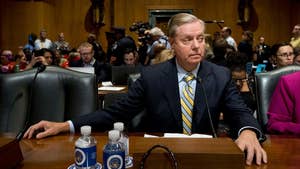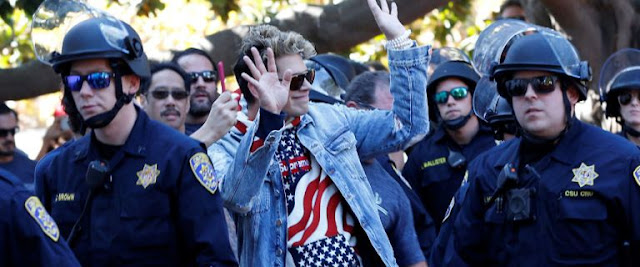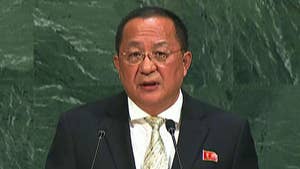Sen. Susan Collins, R-Maine, said Monday she will
vote against the latest ObamaCare repeal bill, effectively killing the
Graham-Cassidy legislation.
Collins' announcement came minutes after the Congressional Budget Office (CBO) released figures
estimating that the legislation would "result in millions fewer people
with comprehensive health insurance that covers high-cost medical
events."
In a statement, Collins referred to the Graham-Cassidy
bill as "deeply flawed," and that health care reform cannot be done
properly "in a compressed time frame.""Sweeping reforms to our health care system and to Medicaid can’t be done well in a compressed time frame, especially when the actual bill is a moving target," Collins said.
"Today, we find out that there is now a fourth version of the Graham-Cassidy proposal, which is as deeply flawed as the previous iterations. The fact that a new version of this bill was released the very week we are supposed to vote compounds the problem," the senator's statement read.
Collins is the fourth GOP senator to come out against the legislation, joining Sens. John McCain, Rand Paul and Ted Cruz who also say they oppose it. However, Cruz aides said the Texas senator is seeking changes to the bill so he can vote in favor of it.
Votes from two other Republican senators, Mike Lee of Utah and Lisa Murkowski of Alaska, are still up in the air.
All Democrats and independents will vote "no," so opposition by just three Republicans would kill the bill.
Collins laid out her three biggest concerns about the bill, noting cuts to Medicaid, weakened protections to those with pre-existing conditions and pointed out that "physicians, patient advocates, insurers, and hospitals agree that both versions of this legislation would lead to higher premiums and reduced coverage for tens of millions of Americans.
"The CBO's analysis on the earlier version of the bill, incomplete though it is due to time constraints, confirms that this bill will have a substantially negative impact on the number of people covered by insurance," the statement added.
The bill, authored by Sens. Lindsey Graham, R-S.C. and Bill Cassidy, R-La., was edited during the weekend in what appeared to be a last-minute effort to provide additional funding to the states represented by senators that expressed concerns regarding the legislation.
Graham said information will be released Tuesday regarding a Senate vote on the bill.
GRAHAM-CASSIDY HEALTH CARE BILL GETS LAST-MINUTE REVISION AS SUPPORT STALLS
With only 52 Senate Republicans, GOP leaders knew they didn’t have a chance of neutering a Democratic filibuster on any repeal and replace effort. Under most conditions, it takes 60 yeas to shut off a filibuster.
But once a year, the Senate can sidestep filibuster rules and consider legislation under a process called “budget reconciliation.” Budget reconciliation limits debate to 20 hours and requires only 51 votes to pass a bill.
Budget reconciliation packages are ostensibly good for only one fiscal year. The government’s fiscal year runs out Saturday night, or Sept. 30, and so does the reconciliation measure for health care. Thus, this week’s health care sprint.
The legislation aimed to allow states to set their own coverage requirements, permit insurers to boost prices on people with serious medical conditions and halt President Obama's mandates that most Americans purchase insurance and that companies offer coverage to workers. It also looked to cut and reshape Medicaid.
The collapse of Graham-Cassidy replays the loss Trump and party leaders suffered in July, when the Senate rejected three attempts to pass legislation erasing the 2010 statute. The GOP has made promises to scrap the law a high-profile campaign vow for years.





















































